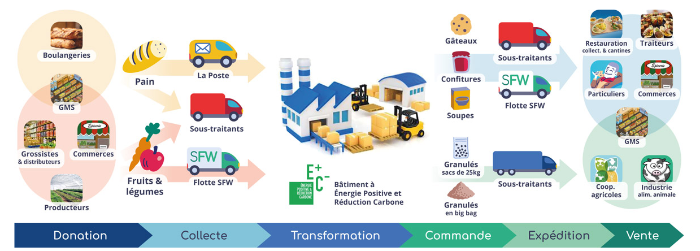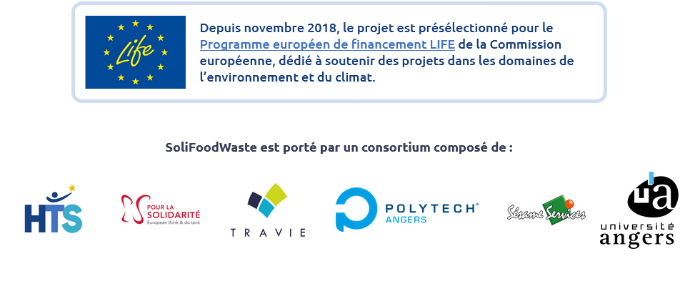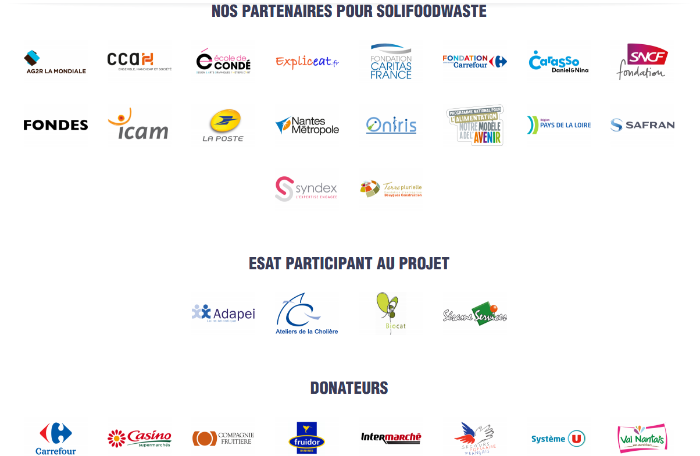- Index
- >Projects
- >Past projects
- >Solifoodwaste
SOLIFOODWASTE Research Project
Develop an industry to reduce food waste by creating jobs for people with disabilities
Group : Reliability Engineering and Decision-Making tools
Labelling: none
Duration: 37 months (09/01/2019 - 09/30/2022)
Funding: European
Staff involved from LARIS: Cécile Gremy-Gros, Abdessamad Kobi, Hassen Riahi
Project partners: Oriane Vérité (Phd student of ESO) directed by Emmanuel Bioteau, supervised by Valérie Billaudeau and Hervé Christofol, 12 months of IGE, 6 interns, 14 projects by Polytech students planned
Other consortium members: Sésame Services (ESAT, France), TRAVIE (Belgium), Pour la Solidarité (Belgium)
Link : https://hts-france.org/les-actions/solifoodwaste
What is SoliFoodWaste?
SoliFoodWaste aims to bring SoliPain and SoliFruits, two circular economy schemes designed by HTS teams and implemented by teams from the sheltered sector (Etablissement et Service d'Aide par le Travail), to the regional and then European level.
The circular economy refers to an economic model whose objective is to produce goods and services in a sustainable manner, by limiting the consumption and waste of resources (raw materials, water, energy) as well as the production of waste.
The pilot for the Nantes region provides for the collection of unsold bread, fruit and vegetables, their transformation in the same structure and then their resale, while creating sustainable jobs for people with disabilities.
Eventually (2030), 60 structures of this type will be deployed in France and five in Europe, with a direct impact of 2075 jobs, including 1725 for people with disabilities. 17% of the bread and 1.5% of the fruit and vegetables currently wasted in France will be recycled.
The objectives
- To fight against food waste by developing an environmentally responsible activity that saves natural resources;
- To fight against the exclusion of people with disabilities through work integration;
- To set up a collection/redistribution process in a short circuit aiming at zero carbon;
- To raise awareness of the need to reduce food waste.
The key stages of the process
Collection
A short-circuit collection process, aiming at zero carbon, will initially allow the recovery of 600 tonnes of bread and 500 tonnes of fruit and vegetables, and eventually to process 50,000 tonnes of unsold bread and 30,000 tonnes of fruit and vegetables (by 2030).
Processing
The bread will be transformed into pastries (recipes developed by a chef with 2 "Gault & Millau" toques) or animal feed. Fruit and vegetables will be recycled into fruit purees, jams and soups.
Distribution
The processed products will be sold locally, under the Euphrasie brand, in supermarkets, canteens, restaurants, grocery shops and on SoliShop.fr , our solidarity shop. The animal feed will be sold to farmers' cooperatives and private consumers.






